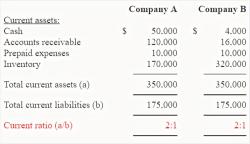What are the best investments for retirement accounts?
Choosing the best investments for retirement accounts depends on various factors, including your risk tolerance, time horizon, and financial goals. Here are some commonly recommended types of investments for retirement accounts:
Stocks (Equities): Historically, stocks have provided the highest long-term returns among various asset classes. While they come with higher volatility, they also have the potential for significant growth. Consider a diversified portfolio of individual stocks or equity mutual funds.
Bonds (Fixed Income): Bonds are considered more conservative than stocks and can provide a steady income stream. Government bonds, municipal bonds, and corporate bonds are common options. Bond funds or exchange-traded funds (ETFs) offer diversification within the fixed-income asset class.
Mutual Funds: Mutual funds pool money from multiple investors to invest in a diversified portfolio of stocks, bonds, or other securities. They offer professional management and diversification, making them suitable for retirement accounts.
Exchange-Traded Funds (ETFs): Similar to mutual funds, ETFs are investment funds that trade on stock exchanges. They provide diversification and often have lower expense ratios than mutual funds.
Real Estate Investment Trusts (REITs): REITs are companies that own, operate, or finance income-generating real estate. Investing in REITs can provide exposure to the real estate market without the need to directly own physical properties.
Target-Date Funds: These funds automatically adjust their asset allocation based on the investor's target retirement date. They typically start with a higher allocation to stocks when the investor has a longer time horizon and gradually shift to a more conservative mix as retirement approaches.
Index Funds: These funds aim to replicate the performance of a specific market index, such as the S&P 500. Index funds offer broad market exposure and often have lower fees compared to actively managed funds.
Dividend-Paying Stocks: Stocks of companies that pay regular dividends can provide a source of income for retirees. Dividend payments can supplement retirement income and potentially offer a hedge against inflation.
Certificates of Deposit (CDs): While offering lower returns compared to stocks, CDs provide a low-risk option for preserving capital. They have fixed interest rates and maturities, making them suitable for conservative investors.
Annuities: Annuities are insurance products that provide a steady stream of income over a specified period, often throughout retirement. They can offer a source of guaranteed income but may have fees and limitations.
It's crucial to maintain a diversified portfolio that aligns with your risk tolerance and financial objectives. Regularly review and adjust your investment strategy as your circumstances change, and consider consulting with a financial advisor to create a personalized retirement investment plan. Additionally, tax-advantaged retirement accounts such as 401(k)s and IRAs offer specific tax benefits that should be considered in your overall retirement investment strategy.
Top investment choices for retirement accounts
Choosing the top investment choices for your retirement accounts depends heavily on several factors, including:
Your age and risk tolerance: Generally, younger investors have a longer time horizon and can therefore stomach higher risk for potentially higher returns. As you near retirement, it's wise to shift towards less volatile options to preserve your nest egg.
Your desired retirement income: Some investments prioritize growth, while others focus on generating income. Consider how much monthly income you'll need in retirement and choose investments accordingly.
Your personal financial situation: Existing debts, other assets, and your employment status all play a role in shaping your investment strategy.
Current market conditions: While trying to time the market is generally not recommended, staying informed about overall economic trends can help you adjust your asset allocation.
Here are some general categories of top investment choices for retirement accounts, with various options within each:
For growth:
- Low-cost index funds: These track broad market indices, offering diversification and minimizing fees. Popular options include S&P 500 index funds and total stock market funds.
- Target-date funds: These automatically adjust asset allocation based on your desired retirement date, becoming more conservative as you age.
- Growth-oriented mutual funds: Actively managed funds with a focus on long-term capital appreciation. Research carefully to choose those with consistent track records and reasonable fees.
For income:
- Dividend-paying stocks: Companies that regularly distribute a portion of their profits to shareholders. While not immune to market fluctuations, they offer income alongside potential capital appreciation.
- Corporate bonds: Loans issued by companies that provide fixed interest payments over a specific time period. Offer lower risk than stocks but also lower potential returns.
- Real estate investment trusts (REITs): Invest in income-producing real estate, offering steady income streams but with potential for volatility.
For income and growth:
- Balanced funds: Invest in a mix of stocks and bonds, aiming for both capital appreciation and income generation.
- Income-generating ETFs: Exchange-traded funds that distribute dividends or interest payments, offering diversification and liquidity.
Remember, diversification is key. A balanced portfolio across different asset classes and sectors will help mitigate risk and potentially optimize your returns over the long term.
It's crucial to do your own research and consider consulting a financial advisor to develop a personalized investment strategy aligned with your unique circumstances and retirement goals.













